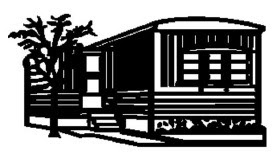 Did several business-hostile politicians leave Sacramento to take over over the City of Palo Alto? Seems that way to me. After all, who else would demand that a family pay $8 million to close its business over issues that the family had nothing to do with?
Did several business-hostile politicians leave Sacramento to take over over the City of Palo Alto? Seems that way to me. After all, who else would demand that a family pay $8 million to close its business over issues that the family had nothing to do with?
“No one should be forced to carry on a business that they want to close,” said Larry Salzman, an attorney with the Pacific Legal Foundation (PLF), which has filed a federal lawsuit against the city because of its demand on the owners of a mobilehome park.
“The city is treating the Jisser [family] as an ATM to solve a problem they didn’t cause — the lack of affordable housing in Palo Alto. That’s not just wrong, it’s unconstitutional,” said Salzman.
“The way to make housing affordable in Palo Alto is to build more housing,” Salzman noted. “The city has for decades refused to permit enough housing to be built to meet the skyrocketing demand, and it is now shamefully scapegoating the Jissers for its own failure.”
Palo Alto is ground-zero for California’s affordable housing crisis, where the median home price is a blistering $2.46 million dollars (compared to $448,000 statewide and $180,000 in the U.S.). A May 2015, report by California’s Legislative Analyst Office blames the state’s high housing costs on overly restrictive land use policies, particularly in coastal cities like Palo Alto.
The PLF is representing the Jisser family (Tim, Eva, and their son, Joe) in the lawsuit challenging Palo Alto’s unconstitutional demand that the Jissers pay millions for the right to close their business. The PLF announcement reveals more about the situation:
The Jissers immigrated to Silicon Valley in the 1970s. They made their living running a small grocery store and saved their money to buy the Buena Vista mobilehome park in Palo Alto in 1986. Since then, the Jisser family’s mobilehome park has provided some of the most affordable housing in Palo Alto for more than 30 years.
At age 71, Tim Jisser would like to retire, but the family has been mired in a highly publicized and often acrimonious dispute for years over their right to withdraw the property from the rental market and close their business. Earlier this year, the city gave the Jissers permission to close their business, but only on the condition that they first pay approximately $8 million to their tenants. The payments include rent subsidies for alternative housing for the tenants and the outright purchase of all of the Jissers’ tenants’ mobilehomes at prices reflecting the acute housing shortage in Palo Alto.
In effect, the Jissers are being forced to remain landlords – and to accept the permanent occupation of their land by their tenants – unless they provide their tenants with enough money to ameliorate the city’s notoriously high cost of housing. But it is the city itself that has created the housing shortage that makes it all but impossible for young families and people of modest means to live there.
Palo Alto is ground zero for California’s affordable housing crisis. It is the city that has refused to allow enough homes to be built to meet the skyrocketing demand during the last several decades, which has resulted in high prices.
Represented by PLF pro bono, the Jissers’ case charges that Palo Alto’s staggering financial demand is an unconstitutional condition on the Jissers’ property rights and a violation of the U.S. Constitution’s Takings clause. The Supreme Court has repeatedly said that individual property owners should not be forced to pay for public benefits that, in fairness, should be borne by the public as a whole.
Earlier, the Jissers had put together a relocation package for the low-income tenants that the city through early 2015 deemed adequate.
“It was really shocking—and frustrating, to say the least—that it would cost in the several millions of dollars to get out of the rental business,” the owner’s son, Joe Jisser, said.

